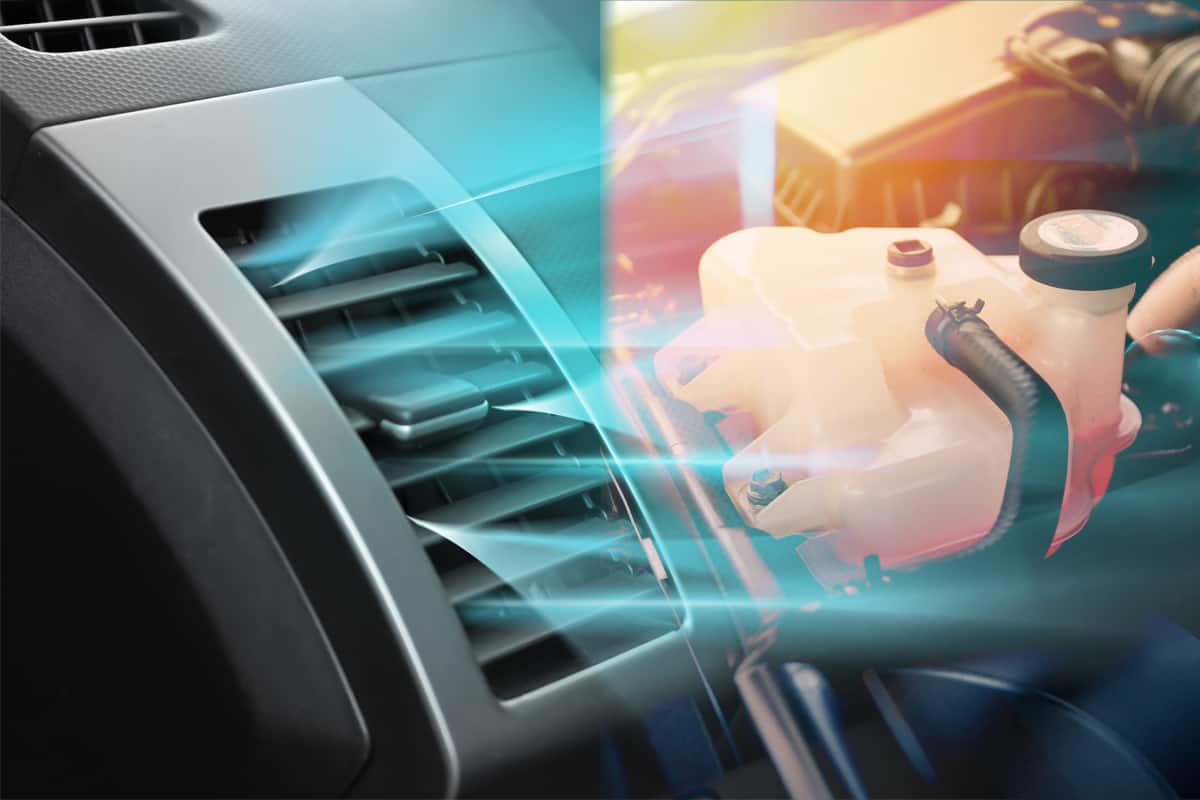When the sweltering summer heat rolls in, the air conditioning (AC) system in your vehicle becomes an oasis of comfort. However, many drivers have experienced a frustrating scenario: an AC system that fails to deliver the much-needed cool air. One vital aspect that often goes overlooked is the vehicle’s coolant level. But can low coolant actually affect your air conditioning performance? To unravel this connection, we must delve into the interplay between your car’s cooling mechanisms and the AC system’s operation.
First, let’s clarify what coolant is. Coolant, also known as antifreeze, is a fluid that circulates through the engine to regulate temperature. It plays a pivotal role in dissipating heat that accumulates during combustion. If your engine runs too hot, it can lead to catastrophic failures. Maintenance of coolant levels is thus essential not only for engine performance but also for your vehicle’s overall functionality, including the AC system.
The air conditioning in your car isn’t merely a luxurious feature; it’s an ingenious system that requires both refrigerant and engine coolant to work effectively. The AC system utilizes a series of components, including the compressor, condenser, evaporator, and expansion valve, to generate the chilled air we rely on during the scorching months. But how does this all relate to engine coolant levels?
One of the less-discussed components of the AC system is the compressor. The compressor is tasked with compressing the refrigerant, which aids in the cooling process. However, the compressor operates under a significant amount of stress and produces heat during its functioning. In vehicles where the coolant is low, the engine may heat up excessively. A hotter engine can result in increased strain on the compressor, potentially causing it to underperform or, in some cases, fail entirely. Thus, maintaining an adequate level of coolant not only preserves engine health but ensures optimal compressor functionality.
Moreover, many individuals may notice that their AC systems underperform on particularly hot days. This can often be attributed to a combination of low coolant levels and the intense ambient heat. When the coolant is insufficient, the engine can struggle to maintain optimal operating temperatures, leading to decreased overall performance. Without sufficient coolant, the compressor may not engage properly, or the system may cycle on and off, disrupting the flow of cool air into the cabin.
Additionally, let’s consider another vital aspect: the heater core. The heater core is a miniature radiator that uses engine coolant to warm the air, which is then directed into the cabin. If there is low coolant due to leaks or insufficient levels, the heater core can suffer. This could potentially disrupt the balance of the entire HVAC system, causing not just heating issues but also affecting the cooling performance as the system attempts to compensate.
It’s essential to keep in mind that problems related to low coolant are often indicative of larger issues. If you find yourself consistently topping off your coolant, it may signify a leak somewhere in the system. The leak could be in the hoses, radiator, water pump, or the engine itself. Addressing the root cause of coolant loss should be prioritized to prevent both engine overheating and compromised AC performance.
Curiously enough, while many drivers are aware that engine issues can arise from low coolant levels, fewer connect this with their AC struggles. This lack of awareness can often lead to discomfort in hot weather and potentially costly repairs if serious engine damage occurs from overheating. Conducting routine inspections of your vehicle’s coolant levels is a simple yet effective practice that can prevent such misfortunes.
When inspecting coolant levels, pay attention to the color and consistency of the fluid. Healthy coolant usually has a bright or vibrant hue, depending on the type, while degraded coolant may appear brown or rust-colored. If you observe any contamination, it may be time to flush the system and replace the coolant entirely. Additionally, it’s advisable to do this in conjunction with regular vehicle maintenance, ideally before the onset of summer.
So, how can you ensure your air conditioning operates efficiently? Start by regularly checking your coolant levels—this should be part of your routine vehicle maintenance. If levels are low, add the appropriate type of coolant as specified in your vehicle’s owner manual. Furthermore, scheduling regular AC system check-ups can help identify any underlying issues before they manifest as uncomfortable trips on sweltering days.
In conclusion, although the air conditioning system might seem entirely separate from the engine’s coolant dynamics, they are markedly intertwined. Low coolant levels can precipitate a series of cascading issues, ultimately affecting your AC’s performance and your comfort on the road. Thus, a proactive approach in managing coolant levels not only safeguards your engine but enhances the overall driving experience. Embracing thorough car care habits dramatically increases the longevity and efficiency of your vehicle. Never underestimate the significance of that emerald liquid—it might just be the key to your summer comfort!
